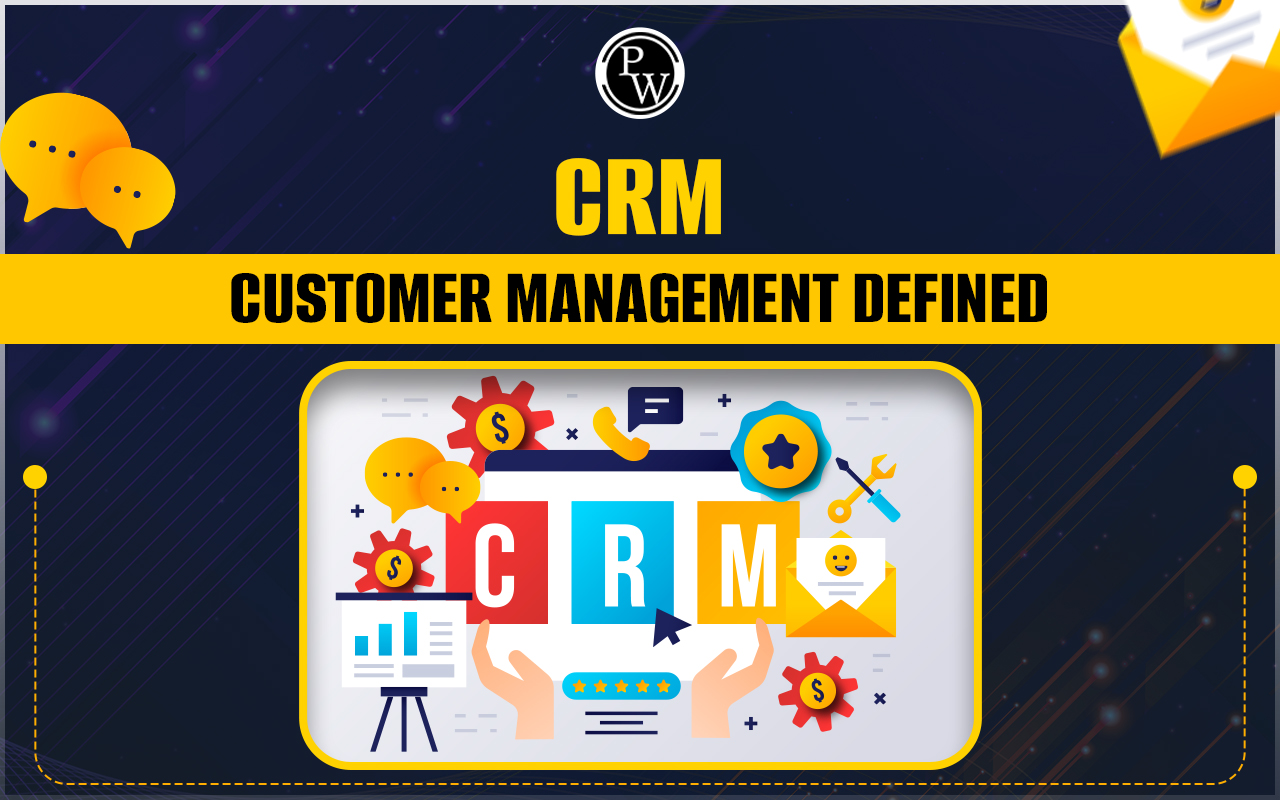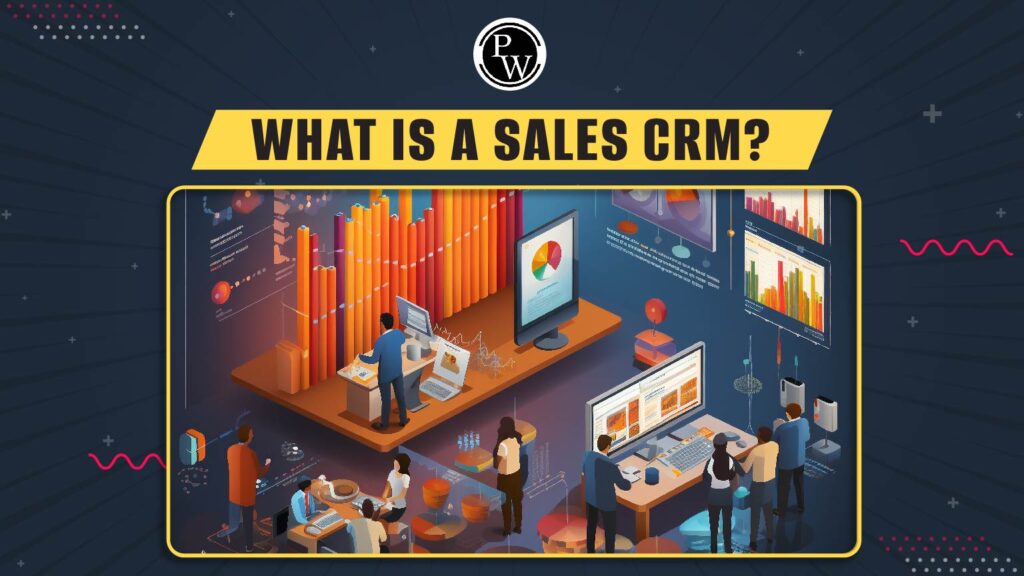What Is CRM (Customer Relationship Management)?
Customer Relationship Management (CRM) refers to the strategies, technologies, and practices businesses use to manage and analyze customer interactions and data throughout the customer lifecycle. The primary goal is to improve customer service relationships, assist in customer retention, and drive sales growth. A CRM system compiles customer data across different channels, which can include the company’s website, telephone, email, live chat, marketing materials, and social media. CRM systems can also give customer-facing staff detailed information on customers’ personal information, purchase history, buying preferences, and concerns.
Key Takeaways of the Content
- CRM systems help manage customer data, leading to improved customer satisfaction and loyalty.
- Effective CRM systems can streamline operations, boost sales, and enhance customer service.
- CRM technologies include software, cloud solutions, and AI-driven management tools.
Understanding CRM (Customer Relationship Management)
CRM is more than just technology; it’s a business strategy that helps companies understand, anticipate, and respond to their customers’ needs in a consistent and effective manner. Implementing a CRM strategy involves aligning business processes and systems around the customer, which requires thorough planning and a strong commitment to customer-centric values.
Benefits of CRM
Implementing a CRM system offers numerous benefits to businesses, including:
- Improved Customer Service: With detailed information at their fingertips, customer service representatives can resolve issues more efficiently and provide personalized service.
- Increased Sales: By automating sales tasks and managing leads more effectively, CRM systems can help increase sales and close deals faster.
- Enhanced Customer Retention: CRM helps businesses understand customer behavior and preferences, enabling them to tailor their interactions and communications to keep customers satisfied.
- Better Data Analysis: CRM systems collect vast amounts of customer data, which can be analyzed to gain insights into customer behavior, market trends, and campaign effectiveness.
CRM Technology
CRM technology has evolved significantly, offering a range of solutions tailored to different business needs. Here are the primary types of CRM technology:
CRM Software
CRM software is a tool used to manage a company’s interactions with current and potential customers. It helps businesses streamline processes, build customer relationships, increase sales, improve customer service, and increase profitability. CRM software typically includes features like contact management, sales management, productivity, and more.
CRM Cloud Solutions
Cloud-based CRM solutions offer several advantages, such as:
- Accessibility: Employees can access the CRM system from anywhere, making it easier to manage customer relationships on the go.
- Scalability: Cloud solutions can easily scale with the growth of a business.
- Cost-Effectiveness: Often, cloud-based CRM systems are more affordable than on-premises solutions due to lower upfront costs and maintenance expenses.
For businesses interested in learning more about CRM technology and how to implement it, check out this comprehensive guide on CRM management software.
CRM Human Management and Artificial Intelligence
Integrating Artificial Intelligence (AI) into CRM systems has revolutionized how businesses manage customer relationships. AI can automate routine tasks, analyze customer data to predict behavior, and provide insights that help personalize customer interactions. Human management is still crucial, as it ensures that the system aligns with business goals and effectively addresses customer needs.
Types of CRM
CRM systems can be categorized into several types, each designed to serve different business needs:
- Operational CRM: Focuses on automating and improving customer-facing and business processes. It includes sales force automation, marketing automation, and service automation.
- Analytical CRM: Emphasizes analyzing customer data and transforming it into actionable insights. It helps businesses understand customer behavior and preferences.
- Collaborative CRM: Aims to improve communication and collaboration between businesses and their customers. It involves sharing customer information among various departments like sales, marketing, and customer service.
For more insights into different CRM solutions, you can explore Zoho Customer Relationship Management.
How Much Does a CRM System Cost?
The cost of a CRM system varies widely depending on the type of system, the number of users, and the features included. Prices can range from free versions with limited features to several hundred dollars per month for enterprise solutions. It’s essential for businesses to evaluate their needs and budget when choosing a CRM system.
How Do Businesses Choose Which CRM to Go with?
Selecting the right CRM system involves considering several factors:
- Business Needs: Determine what specific problems you need the CRM system to solve.
- Features: Identify the features that are most important for your business, such as contact management, sales automation, or analytics.
- Budget: Consider both the initial cost and any ongoing expenses.
- Scalability: Ensure the system can grow with your business.
- User-Friendliness: The system should be easy for your team to use.
For a detailed guide on selecting the right CRM software, check out this article on CRM software.
What Is an Example of Customer Relationship Management?
An example of CRM in action is a company using a CRM system to track all interactions with a customer. This includes recording emails, phone calls, and meetings, as well as storing detailed notes on customer preferences and needs. The system might also automate follow-up reminders and provide analytics on customer behavior, helping the company tailor its marketing efforts and improve customer satisfaction.
The Bottom Line
CRM systems are vital tools for businesses looking to enhance their customer relationships and drive growth. By leveraging CRM technology, businesses can improve customer service, increase sales, and gain valuable insights into customer behavior. Whether through CRM software, cloud solutions, or AI integration, the right CRM system can transform how a business interacts with its customers.
Learn Sales & Relationship Management with PW Skills
For those interested in gaining expertise in CRM and sales management, the Sales & Relationship Management Course by PW Skills is an excellent resource. This course offers practical knowledge and skills to manage customer relationships effectively and drive business success.
CRM FAQs
What is CRM in management?
CRM in management involves using tools and strategies to manage a company's interactions with current and potential customers, aiming to improve customer service and drive sales growth.
What is CRM for customer service?
CRM for customer service focuses on using CRM systems to manage and enhance customer interactions, ensuring timely and effective support to improve customer satisfaction and loyalty.
What is a CRM with an example?
CRM involves managing customer data and interactions, such as a company using a CRM system to track emails, phone calls, and meetings with customers, providing personalized service based on recorded preferences.
What is a CRM tool used for?
A CRM tool is used for managing customer relationships, tracking interactions, automating sales processes, analyzing data, and improving customer service and retention.







